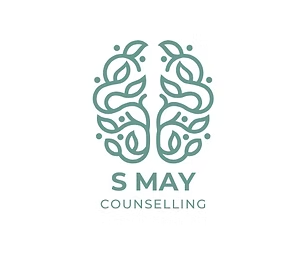

S May Counselling will focus on all your therapy needs.
My name is Sarah
I am a qualified Integrated Counsellor and a member of the BACP, therefore I abide by their code of ethics.
With over 10 years of experience working with both teenagers and adults in therapy, I utilise an integrative approach within a non-judgmental environment to support you on your path to well-being.
More Information
Areas of Experience
I have extensive experience supporting clients through a wide range of challenges—including depression, anxiety, bereavement, divorce, relationship issues, communication difficulties, and addiction. I have worked with both teenagers and adults in both private practice and volunteer organisations
What to expect
Initial Consultation
To help us decide if we're the right fit, I offer a 30-minute consultation at a fee of £35. This is a chance for you to ask questions, share what brings you to therapy, and get a feel for how I work.
Ongoing Sessions
If you choose to continue, sessions can be arranged on a weekly or bi-weekly basis, depending on your needs and preferences. Each session lasts 50 minutes and is charged at £55.
Session Options
Therapy sessions can take place:
In person at my private therapy room in Warwick
Online via Zoom, FaceTime, or WhatsApp Video — ideal if you're located further away or prefer the comfort of your own space


The Integrative Approach: Because One Size Doesn’t Fit All
At the heart of my counselling practice is the belief that each person is unique—and so is their path to healing. That’s why I work from an integrative approach, drawing on a range of therapeutic models rather than relying on just one. No single method can address every individual’s needs, so I blend elements of Cognitive Behavioural Therapy (CBT), Person-Centred Counselling, and Psychodynamic Theories of Childhood to offer a more flexible, tailored experience
Cognitive Behavioural Therapy (CBT)
CBT focuses on the link between our thoughts, feelings, and behaviours. It’s especially effective in helping you recognise and challenge unhelpful thinking patterns, manage anxiety, and develop healthier coping strategies. In our work together, CBT can offer practical tools to help you feel more in control of your emotions and daily challenges.
Person-Centred Counselling
At its core, this approach is based on providing a non-judgemental, empathic, and accepting space where you feel truly heard. It’s not about giving advice or direction, but about empowering you to explore your own feelings and solutions at your own pace. This kind of safe therapeutic relationship can be especially healing if you’ve experienced a lack of support or validation in the past.
Psychodynamic Theories of Childhood
Many of the difficulties we face as adults can be traced back to early life experiences. By exploring your past through a psychodynamic lens, we can start to understand how your childhood relationships, attachments, and unresolved conflicts may be influencing your current patterns of thinking, feeling, and relating to others. This deeper insight can pave the way for lasting change and emotional growth.
Why Integrative Counselling Works
By combining these approaches, I aim to meet you where you are. Some days might call for practical strategies (CBT), while others may benefit from gentle exploration (person-centred), or deeper reflection on past experiences (psychodynamic). This adaptability allows for a more personalised, responsive, and holistic therapy that respects your individuality and supports your growth in a way that works best for you.

Contact
Contact me today to start your journey to better mental health.
Tel: 07436 778773
email: sarah@smaycounselling.com
.png)